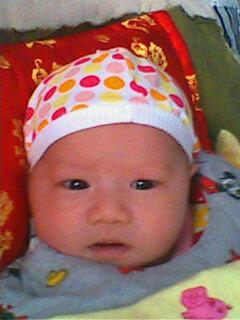| The Chinese Language | |
|---|---|
| Jun 27, 2006 03:14 | |
 | So much has been discussed about native English- speaker. Now let's talk about Chinese speakers (note no "native" used !! ). Our forefathers really multiplied and with their adventurous spirit, we now find Chinese all over the places in the world. For me in SG, we speak beside English, Mandarin as well. We think our standard of Mandarin is OK. But quite often when we speak to our comrades in China, we run into occasional problems. We find that they don't understand our Mandarin sometimes. And we asked ourselves "How come their Mandarin is so poor - can't even understand us ?". Have u had such experiences ? What other experiences you have encountered beside SG Chinese ? |
| Jun 27, 2006 19:36 | |
 | Hey, no comments on this ? Strange. So do you understand this :- 1. Ni zou xian ( Sg ) 2. bu cuo chi ( Taiwan ). ?? |
| Jun 27, 2006 19:54 | |
 | 1. After you! 2. Yum, delicious? I guess:) |
| Jun 27, 2006 20:02 | |
 | Yes, Runner. U are correct. But why did u have to guess ? What about this : wu can shi cai chi can da de. ?? |
| Jun 27, 2006 20:07 | |
 | What tones of each word? is it about dinner? It's greek to me. |
| Jun 27, 2006 20:09 | |
 | This is interesting, language is dynamic and live. No Chinese native speakers will venture to say his/ her Chinese is the only correct Chinese or his/ her Chinese is pure Putonghua(Mandarin). Misunderstandings are everywhere, and that makes communications funny and enjoyable. It was funny in the first few days of my college, there was a Sichuan girl in our dorm, Sichuan dialect is not that hard to understand to most northern Chinese, but there are some special phrases that are confusing to us. I give you an example: It is clear when we ask the price of something, we say "Duo Shao Qian(多少钱?)" but Sichuan people like to say "Hao Duo Qian(好多钱)" which to us is an excalmatory sentence, NOT a question, means: "Lots of money!!". So one day I bought a pair of shoes and this girl said they were beautiful and "Hao Duo Qian", "right, they are a little expensive", i replied. She repeated it"Hao Duo Qian" and so did I, i repeated the answer too. Then she raised her voice and said "Hao Duo Qian", I was more than shocked than confused. I looked into her wide opened eyes for a few seconds and suddenly i got it and burst into laugh.... Putonghua is just an invented language for easier communication, no one really speaks the language without more or less dialects of some region, no one that is except the news broadcasters when they work. We northern Chinese do not speak or understand some of the southern dialects, such as Jiangxi Dialect, Fujian dialects and Cantonese, etc which is common, not a big deal. Putonghua is a great invention. SO, it's normal we have difficulties sometimes when we communicates with people from other regions, especially overseas Chinese. Anyway, i enjoy talking with people with different dialects, it's good to look into our own language and try to understand others. Let me try: 1. Ni zou xian ( Sg ) 2. bu cuo chi ( Taiwan ). The first one is not only spoken in SG, many people in mainland China use the same expression a lot. 1, Ni Xian Zou 2, ?? sorry, hahaha~~ |
| Jun 27, 2006 20:12 | |
 | This is hilarious~~~, the interesting questions and more interesting guessing:) |
| Jun 27, 2006 20:19 | |
 | We all have our different Chineses. The problem with such a vague, highly diversified language (geologically, culturally, politically) is that there are many levels within it that may or may not be applicable to all places. I was trained first in the USA in mainland putonghua with simplified characters. Words often included "er" within them so as to standardize "Beijinglish" for us as "Chinese". When I went to Taiwan and spoke with this Americanized Beijinglish accent, people thought it was funny. Over the course of a few months I dropped it and picked up a very natural but "standard" sounding tone with my formal Taiwan guoyu, drawing on speeches from Hu Shi largely for a picture of "good" modern Chinese. Then after studying classical Chinese, I found that I either intentionally or unintentionally used classical grammar or vocabularies. I also started to invent modern words with classical components. Let's face it, you only can study so much within textbooks and dictionaries...after a certain period of time you need to become creative with your language, and that's what I did. Then I was on the street a fair amount, which, as an older Chinese would say, "polluted" my Chinese. By the time I left Taiwan, my Chinese was a very interesting but sometimes awkward patchwork of classical Chinese (one person said I sounded like a Qing Dynasty official), 1910s-1950s "proper" guoyu, and filling in the gaps with street language. Some thought it was very cool, some thought it was just a bit weird, some people just got confused by it. In the end though it's *my* Chinese, not the current standard of any political or geographical entity. It will no doubt continue to evolve, but so long as I can communicate, I am happy with "imperfect" stylized Chinese. |
| Jun 27, 2006 20:31 | |
 | Very well,Xiaomage, I will like YOUR Chinese! Language is just a tool for us to communicate with each other. Try our best to make others understand, tha't enough. :D |
| Jun 27, 2006 20:35 | |
 | 1. When I said this " wu can shi cai chi can da de" to a friend, she was lost too ! Make another guess, lah, Runnermore. Our SG Mandarin is not that difficult to understand, is it ? How come your Mandarin is so poor ?! 2. "Bu cuo chi" - I was lost too when I first heard this over a Taiwanese TV show. Then I burst out laughing - I couldn't believe it. Make a guess, lah, Rita. How come your Mandarin is also so poor ?! Hahaha ! Yes, I suppose both Rita & Xiaomage have your point. But surely there ought be a standardised version that should be used when speaking to a comrade of another dialect. I like the Sichuan dialect tone. Generally, dialects are very beautiful and colourful. |
| Jun 27, 2006 20:41 | |
 | It will be much easier to understand this already short sentence into: Bu Cuo, Chi! (pointing at a dish) 不错!吃! hahaha, joking |
Page 1 of 3 < Previous Next > Page:
Post a Reply to: The Chinese Language








 Copyright © 1998-2026 All rights reserved.
Copyright © 1998-2026 All rights reserved.